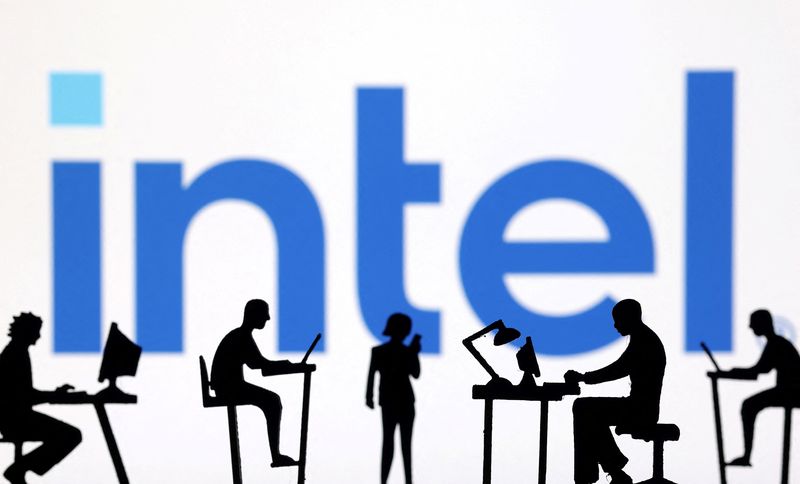By Max A. Cherney and Stephen Nellis
SAN FRANCISCO (Reuters) - Artificial intelligence offers a growing and potentially lucrative opportunity for Intel (NASDAQ:INTC)'s freshly standalone programmable chip unit, its CEO Sandra Rivera said.
Intel's programmable chip unit began operating as a standalone business at the beginning of the year, and on Thursday outlined its plans for the future and its official name: "Altera, an Intel company."
The parent company plans to hold a stock offering for Altera over the next two to three years.
Rivera said the programmable chips Altera designs are useful for AI applications and computing tasks that fall in between the purpose built custom processors designed by cloud computing companies like Amazon.com (NASDAQ:AMZN) and the general use AI chips made by Nvidia (NASDAQ:NVDA).
Because the hardware needed to power AI is in flux at the moment, programmable chips will fill a growing niche market, she said.
"(Programmable chips are) always at the forefront of that innovation cycle and that's our job to stay at the forefront," Rivera said. "To make it easy to drive these transitions."
The market estimate for programmable chips was roughly $8-$10 billion for 2023, but it's not clear how large the opportunity for programmable chips is because no good third party data exists, Rivera said.
"I think it's larger than people realize," she said, and added that's because there are many programmable chips helping at various stages of the "AI workflow."

The company's current Agilex line of programmable chips is produced by Intel Foundry, the company's contract manufacturing arm. Rivera declined to say whether Intel Foundry will manufacture the forthcoming Agilex 3 chips but it expects to be "treated like customers" and get a "friends and family discount on top."
In a follow up email, an Intel spokesperson said its contract manufacturing customers may "receive favorable pricing based on their anticipated volumes and Intel business units are the largest customer(s) of Intel Foundry today."